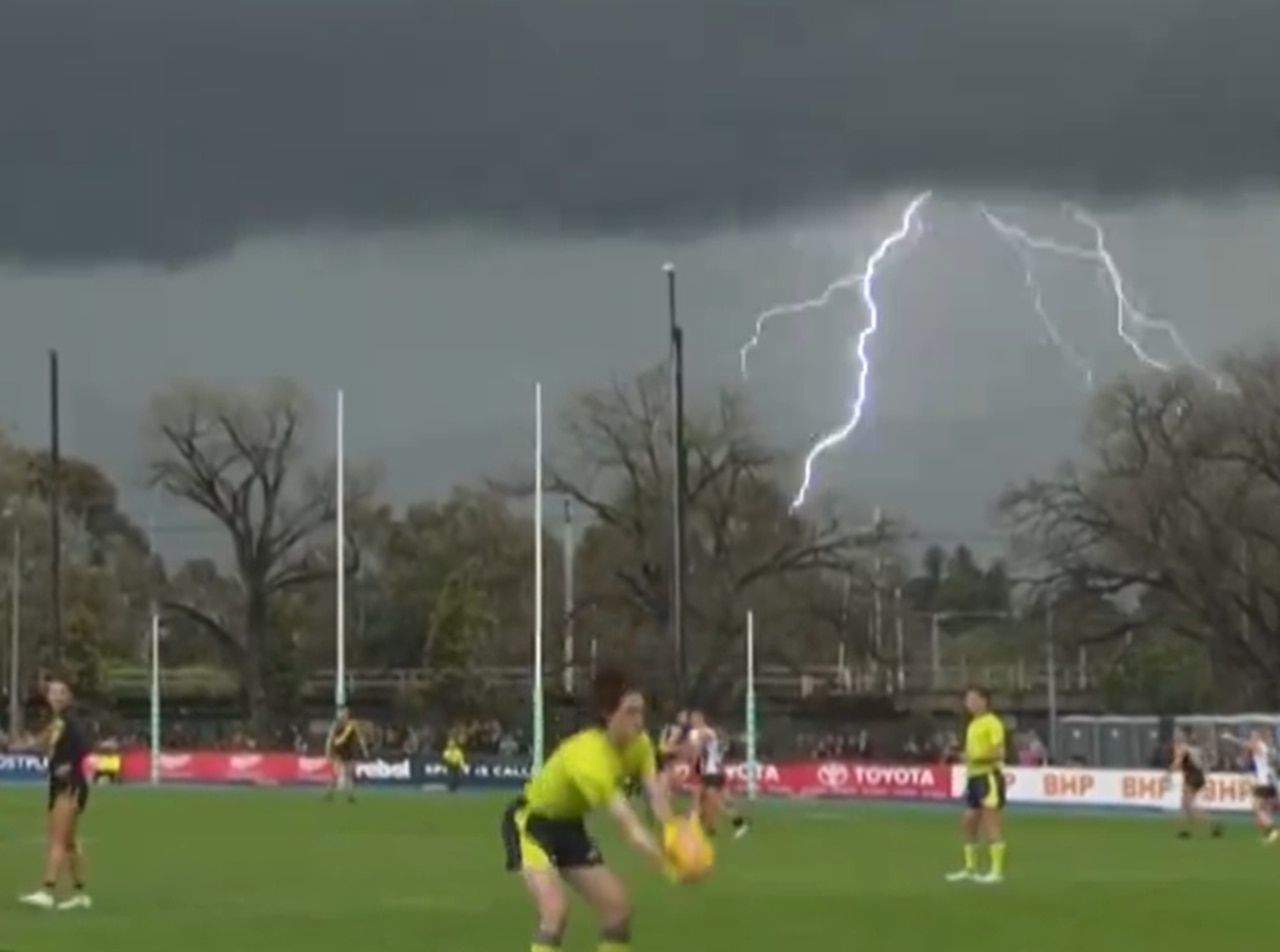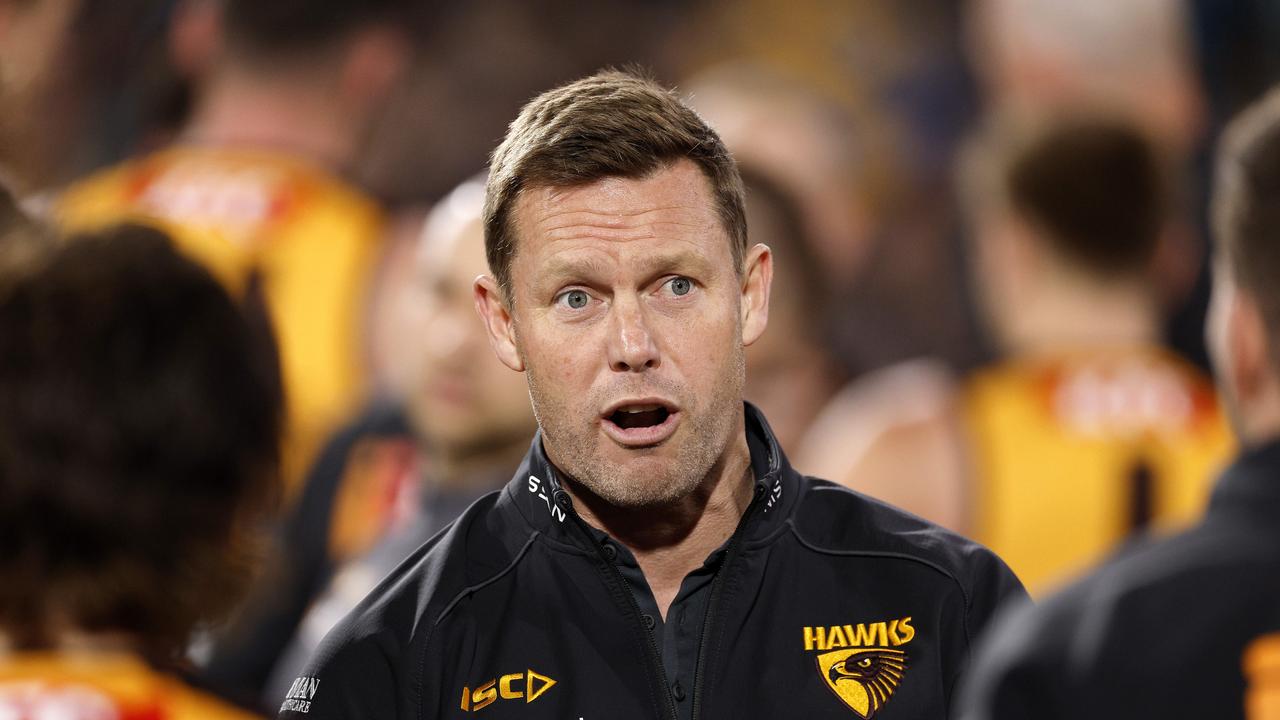Mick Malthouse urges AFL to change dissent and stand-on-the-mark rules
The stop-start nature of these umpiring calls goes directly against the grain of a fast free-flowing contest. And Mick Malthouse believes it is killing the game.
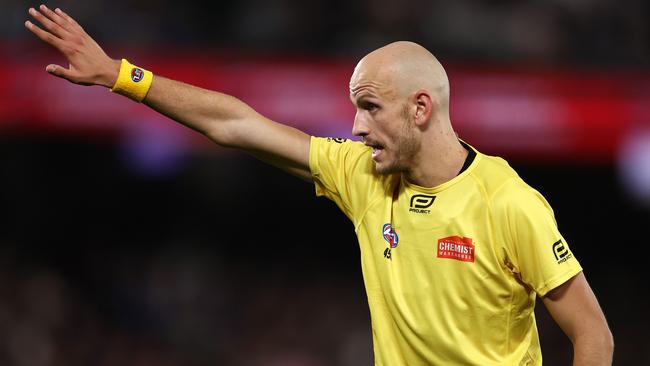
Picture yourself watching a football game at the ground or on the TV. Are you quiet or rowdy?
How about when a free kick is awarded against your team?
Crowds are never silent and I’m tipping that loungerooms during the footy aren’t quiet either. That’s because when you barrack for a club you are invested in the outcome, and there are emotions attached to that.
Players warm up pre-game to the get the blood flowing and the heart rate up. So, when the ball is bounced, they’re fired up. They ARE playing for sheep stations and a place in the finals. Everything counts. Every action. Every decision.
It is an absolute absurdity to suggest that players can calm their heart rate and switch off their emotions just because a whistle has blown.
When their heart is pounding out of their chest and their blood pressure is ringing in their ears because the game is on the line, are they supposed to act like they don’t care? Like the statue on the mark, are they supposed to keep their arms still by their sides, and their facial expressions blank? Can they not show any emotion? No frustration? No disappointment?
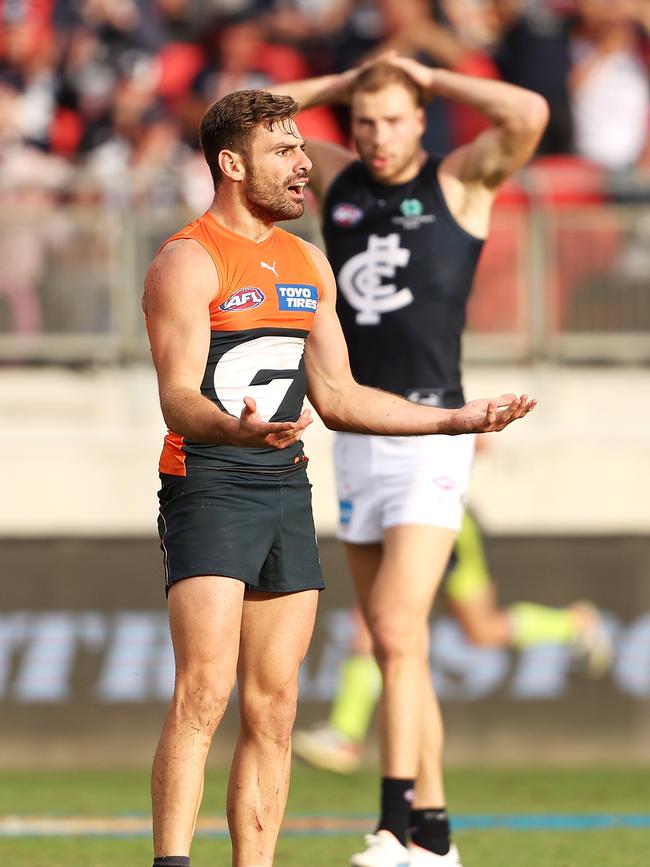
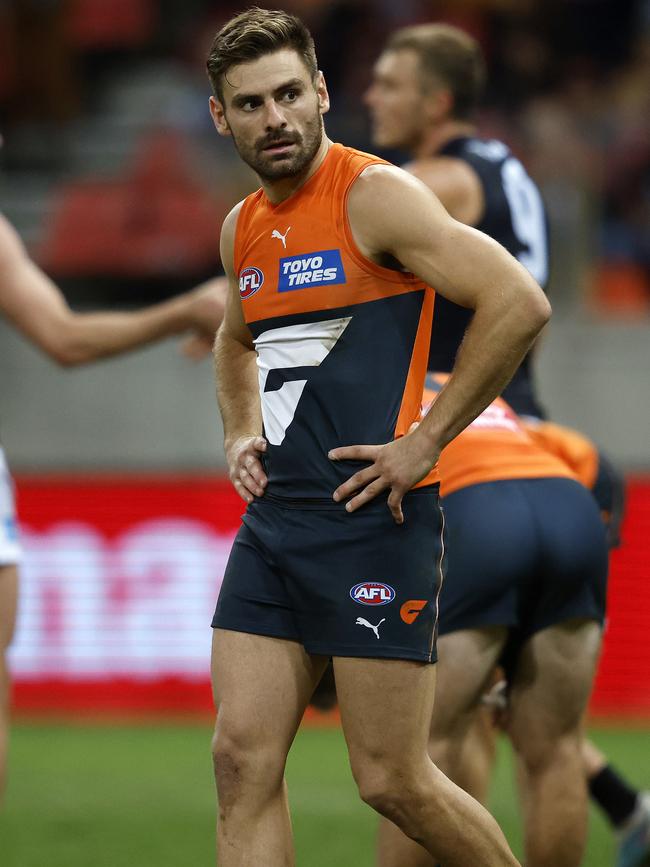
We cannot lose the emotion from our game. It’s too important.
Admittedly, we would never accept and never want to see the kind of humiliation, disrespect, and verbal and physical confrontation between players and referees that occurs on some of the major soccer league fields.
Nor do we need the “yes sir, no sir” manners of rugby union.
We need to be somewhere in the middle. Where an umpire’s decision is final and respected, but where there is tolerance for a contained display of player emotion.
Umpires’ boss Dan Richardson’s response to last week’s call of dissent against Greater Western Sydney’s Stephen Coniglio was ludicrous. To suggest the umpire’s decision was the product of an accumulative effect, is to suggest that a defender can push his opponent in the back, repeatedly, but only get penalised once, for the final shove, in front of goals in the dying minutes of a close game.
If it is, in fact, cumulative, then communication becomes key to addressing it. If an umpire has a problem with a certain player during a game, then go to the team mangers at the breaks and share that information. Let them tell the player to pull his head in. Nip it in the bud. I mean, a coach doesn’t wait until the end of the game to tell the players to play differently.
If, on the other hand, it’s a temperament issue, then perhaps we don’t need four umpires on the field to over-officiate the game. If one sees it as dissent and another doesn’t, then who is correct?
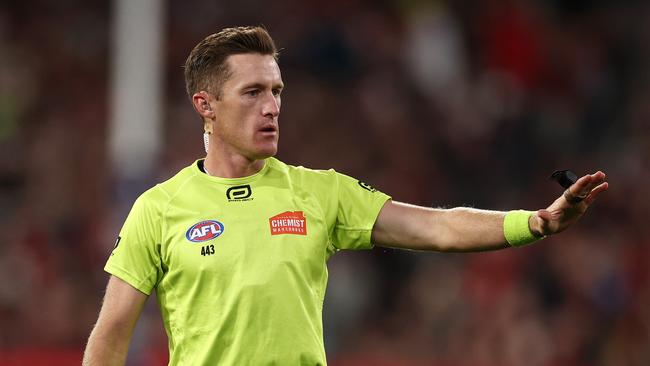
I’ll tell you what’s wrong: inconsistency. Because it leads to doubt and distrust.
Already there is heightening resentment over the stand-on-the-mark rule. It is loathed by the clubs, and the supporters, as the most useless and demeaning action in football.
The rule was introduced in the 2021 season apparently “to give the player with the ball more opportunity to attack and go through the corridor, in the hope of boosting scoring”.
Based on this reasoning the rule is flawed.
Have a look at the Collingwood team of 2010 and 2011. It was a running machine that played on around the moving man on the mark. Alastair Clarkson’s Hawthorn, three-peat premiers, dissected the opposition with super efficient kicking, even with a moving man on the mark.
Richmond’s play-on-at-all-costs game was never affected by the man on the mark.
All outstanding, successful football teams. All big scorers.
If we’re looking at the bottom teams to find out why they can’t score, it’s not a reason to change the rules. Particularly one that has little bearing on scoring.
No umpire has yet to get it right at calling play-on fast enough for the man on the mark to re-join the action. Umpires are very late because players have become experts at disguising the play on.
In many instances the player with the ball runs past the man on the mark and by the time the ump calls play on, the ball has been kicked and the lamppost defender is chasing from 2m behind.
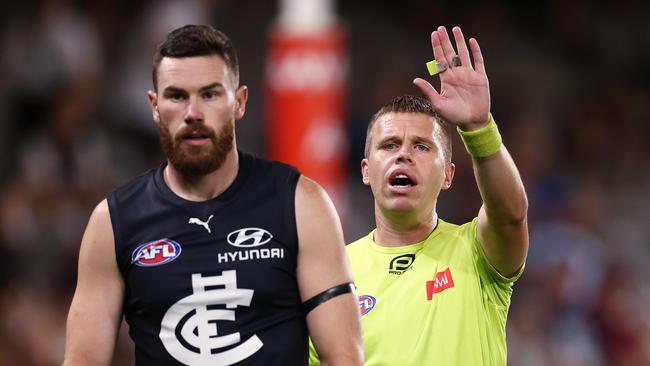
If the AFL thinks this is fair mindedness and part of the game, ask the supporters what they think when their team is disadvantaged by a pole stuck on the spot, and then penalised for another player who moves across the man on the mark.
If the league persists with this rule, and really, why should they? Then the umpire must have the whistle at the ready to use the instant the player with the ball moves to take a step off the mark. That is hard to do.
Because what we want to do is eliminate the prospect of another 50m penalty.
There’s already too many and it’s killing the game. The stop-start nature of the result of those calls goes directly against the grain of a fast free-flowing game.
AFL umpires do a wonderful job. They officiate the game within the rules to the best of their ability. But it takes time to gain the experience for the speed at which things happen at the top level, and to have the tolerance to understand when a player is posing a question out of frustration, compared to being outright disrespectful.
Let them umpire, as opposed to adjudicating. Games can be won and lost on good and bad decisions. That’s enough. To lose a game because an umpire is offended – that’s a whole other ball game.





